
Helena Antipoff, the Russian-born National Treasure of Brazil
/ Главная / Russkiy Mir Foundation / Publications / Helena Antipoff, the Russian-born National Treasure of BrazilHelena Antipoff, the Russian-born National Treasure of Brazil
There is a monument to Helena Antipoff, a Russian woman, in Brazil. She was a child psychologist and teacher who transformed the entire school system in this country. It was Helena Antipoff who managed to make a difference in attitude towards children with special needs. She also developed an education system for gifted children. Her legacy includes departments of psychology at local universities, a network of rural schools, and centers for gifted children, as well as the very system of public school education in Brazil that she has founded.
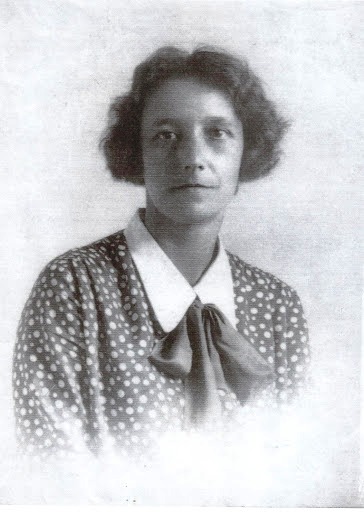
Helena Antipoff, the 1930s. Photo credit: museus.cultura.gov.br
School years
Helena Antipoff was born in the small Belarusian town of Grodno. Her father's regiment was stationed there. But soon her parents moved to St. Petersburg. Helena's father, a major general of the imperial troops, made an excellent career - he became the head of the Vladimir Military School. And little Helena was sent to the Tagantsevskaya gymnasium.
Marxist group and lessons for workers
At the beginning of the 20th century, the Russian intelligentsia was imbued with the spirit of the upcoming revolution. Young schoolgirls were also affected by it. Helena and her friends became members of the gymnasium group for studies of forbidden Marxist literature. The girls decided to take it a step further, make a practical contribution and reach out to “the people” - they began to teach arithmetic, geography, and foreign languages to workers of the Putilov Mill. Some documents in archives state that Helena Antipoff's apartment was under surveillance by the secret police.
Helena's mother wanted to protect her daughter from the revolutionary influence and took her away to Europe after the girl had finished high school. In Paris, Helena got interested in psychology and began attending classes in the laboratory of Alfred Binet and Theodore Simon, founding fathers of the world-famous Intelligence Scale. Back then, they just began their research to find methods to measure the child's intelligence and adapt teaching for children of different developmental levels. At that time Parisian schools began to use the first intellectual tests for children.
Helena moved to Geneva, thanks to Édouard Claparède, a leading expert in applied and educational psychology, founder of the Rousseau Institute in Geneva, who was engaged in the research of child psychology. She became one of the most successful and favorite students of the scientist and took part in an experiment on psychological research of children in Geneva schools.
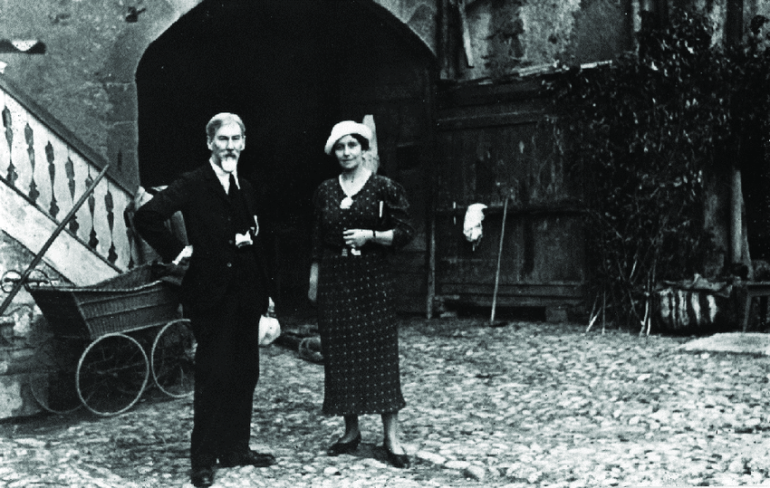
Édouard Claparède and Helena Antipoff. Photo credit: researchgate.net
Interestingly, the Rousseau Institute accepted many women to study back then. The number of female students exceeded the number of male ones significantly. As to Helena, at that time she wrote a series of articles advocating the importance of the New School. She put special emphasis on the importance of education for girls and women. She wrote her articles in Spain, where women were forbidden to study at universities until 1910.
Work with homeless children
Her plans were intervened by the First World War. Helena's father was badly wounded. In 1917, Helena went to search for him literally to the front line. The courageous girl was able both to find her father and to transport him to the Crimea where their relatives lived. Thus, fate decreed that Helena Antipoff would return to revolutionary Russia. She found a job in her field right away. She joined the psychoneurological institute, which was headed by Vladimir Bekhterev. Professor Alexander Lazursky who had studied under Bekhterev became one of Helena Antipoff’s key teachers. It was Lazursky who developed. holistic teaching on psychological characteristics of personality, which was used as the basis for further Antipoff’s practices.
The young scientist made efforts to use the latest psychological developments in solving social problems in revolutionary Russia back then. Her charges were orphans and homeless children of the Petrograd Quarantine Clearing Station, where she was able to examine more than a thousand children.
At the same time, she married Viktor Iretzky, a writer. In 1919 they had a son, Daniel. And in 1922, her husband was expelled from Russia along with other intellectuals that were no more need by new Russia. This refers to the well-known Philosophers' ships campaign. Two years later, Helena and her son joined her husband in Berlin. She had a one-year visa in her passport. But, as it turned out, she left Russia never to return.
But in Berlin, her personal and professional life headed downhill, and Helena wrote a letter to her teacher, Professor Édouard Claparède. He was glad to invite her to Geneva, where she joined the Rousseau Institute as an assistant professor. One might think her dream came true - she was again busy with her favorite pursuit and surrounded by like-minded people. But it was not all as easy as it sounds. Helena’s standing in Switzerland was not stable at all: the German visa expired long ago, and the local authorities did not want to grant her a residence permit. This long-drawn unsettled and insecure state was a crucial factor when Helena Antipoff decided to accept an unexpected invitation. An official from one of the Brazilian states offered her to organize a model school as part of educational reform. So, in 1929, she boarded the Julius Caesar transatlantic liner and went to a country unknown to her.
Centered on respect for children
Again it seemed to her that she was going there for short while - for two years only. But life decreed otherwise. At first, Helena wrote in letters that it was difficult for her to get accustomed to a new environment: unfamiliar language, lack of friends. But gradually new tasks and goals made her involved and even enthusiastic. She joined the Teacher Retraining School and trained teachers for the very New School to be established there.
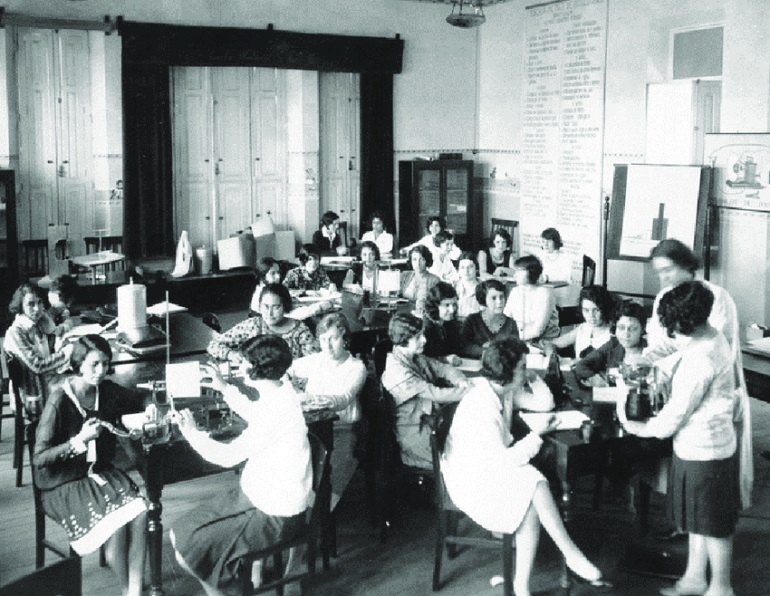
Teacher Retraining School. Helena Antipoff. Photo credit: researchgate.net
Her former students recall that Donna Helena changed the entire psychology of elementary school in a fundamental way. She explained to local educators that it was necessary to understand the personal characteristics of a child. A large-scale psychological study of children was conducted for this very reason. Her assistants went to schools and asked children what they liked to do at home and at school, what was their favorite toy and what they would like to be when they grew up. And all those arrangements were carried out to adapt educational processes to the level of the child and to the development of his interests.
“It was centered on respect for children. Before that the education had been lifeless,” one of her students who also became a children's teacher explains the purpose of Helena Antipoff's work.
Two years just flew by. When the authorities asked if she would like to extend the contract, Helena replied: “Yes, but subject to one condition - my salary should be cut in half.” Her son Daniel explained his mother's position as follows: “When she came here, she earned a lot, just like ministers. And it didn't seem right to her." Yes, the Russian woman once again stunned Brazil.
Fazenda Rosario - the perfect world of a happy childhood
Gradually, Helena Antipoff’s name was becoming more and more known in Brazil, she managed to raise funds for her new projects. Thus, she got interested in why children dropped out of public school. It turned out that they simply did not keep up with the school curriculum, and sometimes the whole class dropped out for this reason. She was especially concerned about children from poor families and children with disabilities.
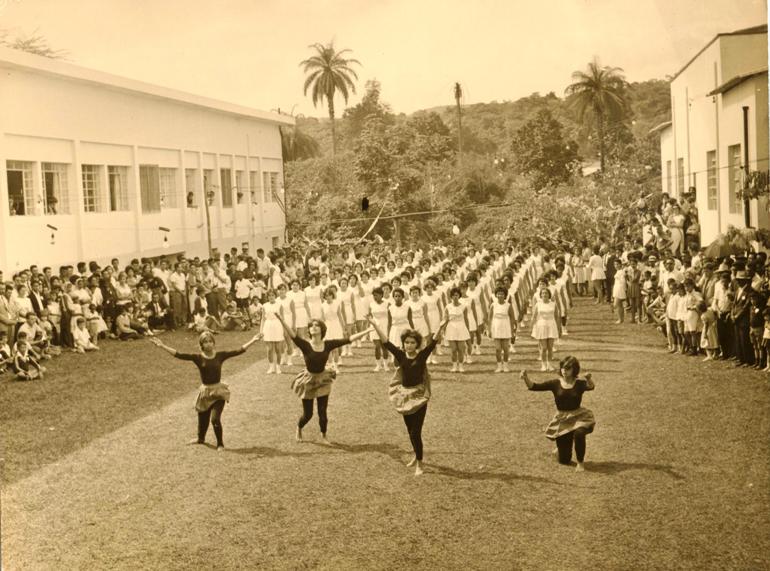
Festival at Fasenda Rosario, 1963. Photo credit: museus.cultura.gov.br
Her close associates recall that Helena used to ask why children slept on the streets in a city where there was no war. Thus, a new goal was set - to help homeless children in Brazil. So she established the Pestalozzi Society (named after the famous Swiss teacher and educator Johann Heinrich Pestalozzi) to care for children with disabilities and other developmental disorders. Later on, the Pestalozzi contributed to the establishment of the Young Workers' Home, which became a shelter for homeless children.
She also notices that urban residents were more aggressive towards intellectually challenged people than people in rural areas. And then the idea came up - to open an orphanage somewhere outside the city. Having been assisted by philanthropists, she acquired a land plot and opened Fazenda Rosario. Eventually, this place turned into a complete educational complex where Helena Antipoff's main dream came true, i.e. a better and just environment where every child got the right to education and development.
Fazenda Rosario, the happy oasis of childhood, provided children with opportunities to study, work in the garden and in the kitchen, listen to classical music, recite poetry, be engaged in making ceramics in the studio, master painting techniques, and theatrical art.
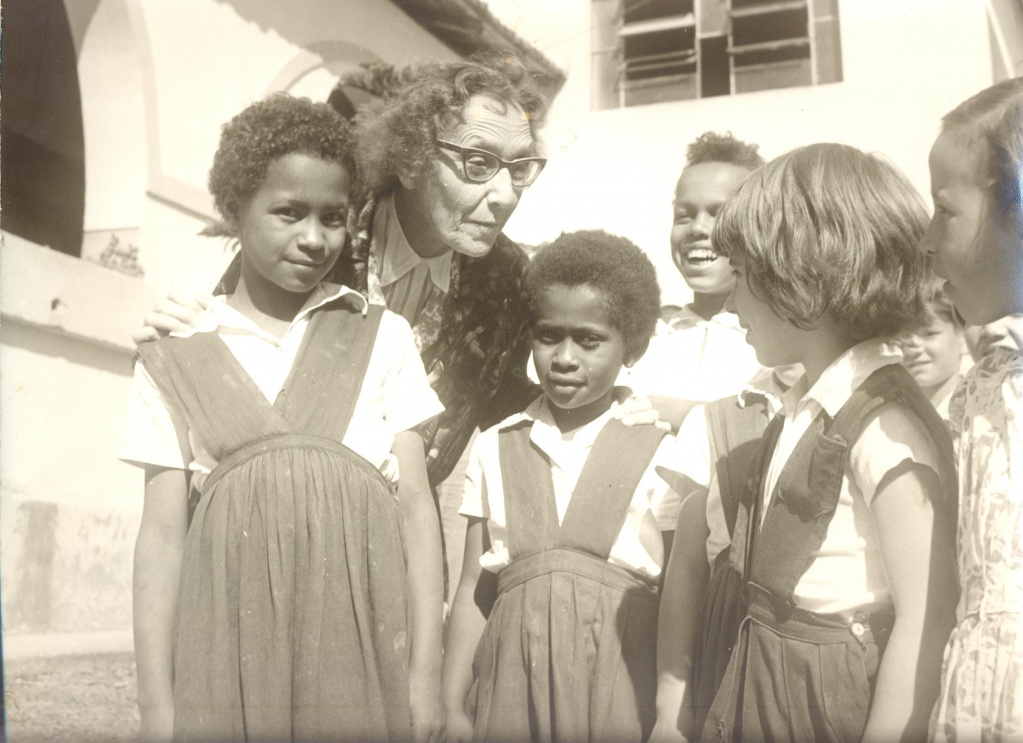
Helena Antipoff with children. Photo credit: museus.cultura.gov.br
Her followers emphasize that Antipoff always said: “Every person has the ability to do something better than others. All you need is to discern this ability."
“We need to liberate our children from galleys”
Gradually the Fazenda Rosario project expanded. There was the Institute of Rural Education established for future teachers. Moreover, the number of candidates competing for each place was rather serious: it was necessary to select only 45 people out of about 800 applicants. The institute trained, among others, those teachers who would work with mentally and physically challenged children.
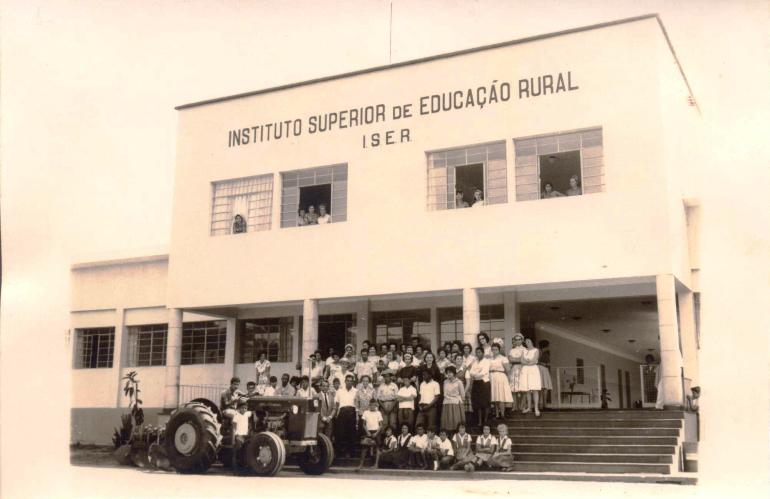
The Institute of Rural Education. Photo credit: museus.cultura.gov.br
Helena Antipoff managed to literally turn Brazilian society’s perception of these children around by calling them not retarded but exceptional. And she used the same term to particularly gifted children. She was convinced that gifted children also need a special approach since their gift was often not paid attention to and its development was disregarded. This is the reason behind the establishment of the Association for Gifted Children.
Helena Antipoff received an award for her work and, just like the founder of the Tagantsevskaya gymnasium, she decides to use this money to open a new educational institution for gifted children to develop their talents. It was assumed that regular schools would send children there for extracurricular activities. Furthermore, most of those children were from ordinary families. And Helena Antipoff’s school enabled them to discover a completely different life. They came to a beautiful place where special teachers were invited for classes - biologists, theater directors, artists. Thus, children were given a choice of the professional field that was closer and more interesting to them.
And here is one more quote by Helena Antipoff that she used to repeat often: “We need to liberate our children from galleys.” Saying “galleys” she had monotonous school education in mind
Her legacy lives on
Back in 1924, the staff of the Rousseau Institute took part in the development of the World Declaration of the Rights of the Child, which stated that every child had the right to education. And it became a kind of commandment for Helena Antipoff. When she came to Brazil, there was no public education system, only a private one. There was no rural education system. But Antipoff’s school triggered the expansion of public education throughout the country, especially in rural areas. The merits of the Russian psychologist and teacher were recognized at the highest state level. She was awarded the National Order of the Southern Cross, the highest state award of Brazil, and the President of Brazil personally awarded her with the Medal of Merit in the Field of Education.
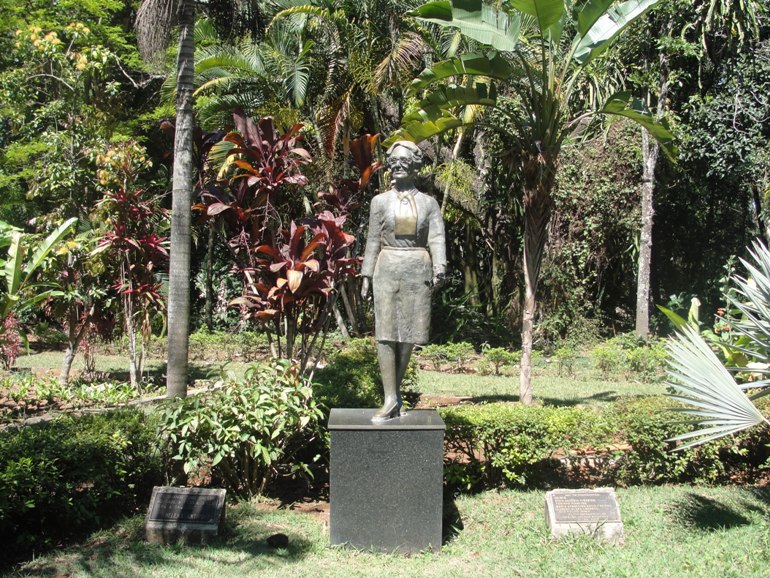
Monument to Helena Antipoff in Ibirité (Brazil). Photo credit: museus.cultura.gov.br
Truth be told, in the 1960s, at the height of student unrest, Helena Antipoff was almost enlisted as a communist. They even came to her house to check what books she had, whether there were works by Marx and Lenin in her closet. But that episode was a transient one. It did not change her sentiments to Brazil, which she loved as her second home.
Helena Antipoff passed away in 1974. Numerous close associates, politicians, and students accompanied her on her last journey. But even today her work lives on. The Center for Development of Potential and Talents has been established. Last year it celebrated the 25th anniversary of its opening. Its specialists visit schools, select talented children, and invite them to classes. Deaf and dumb children, children with problems of perception and motor skills also study here. Physiologists, speech therapists, experts in motor function recovery work with them. There is the Pestalozzi Public School, which grew out of the Society founded by Helena. There are also classes for training teachers.
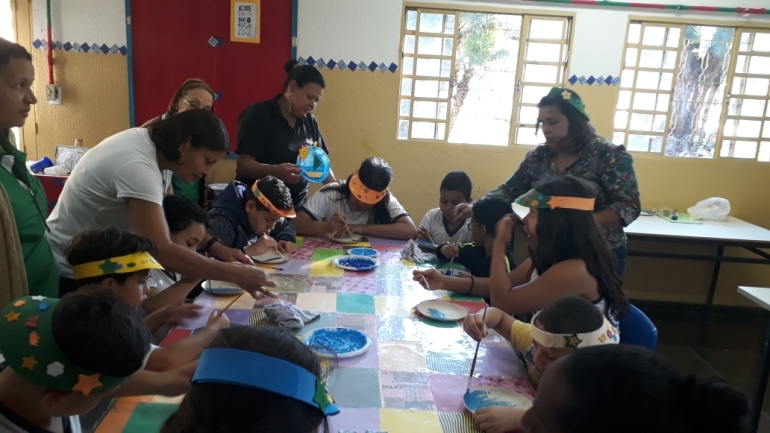
Classes at the Memorial Helena Antipoff in Ibirité. Photo credit: museus.cultura.gov.br
The Helena Antipoff Foundation has been established. It includes a school, a psychological clinic, a public library, and a vocational school opened recently. Five volumes of her scientific works have been published in Portuguese. And all her activities are included in the historical heritage of Brazil. Today, all these institutions founded by a Russian immigrant continue to welcome thousands of people.
“As a feminine apostle sent down to us from the Russian heavens, she was the best example of raising and building up that she taught and preached with her own life,” Otto Lara Resende, a famous Brazilian writer, wrote about Helena Antipoff.
New publications

 Mikhail Kalatozov, a director who transformed the world of cinematography in many ways, was born 120 years ago. He was a Soviet film official and a propagandist. Above all, he was capable of producing movies that struck viewers with their power and poetic language.
Mikhail Kalatozov, a director who transformed the world of cinematography in many ways, was born 120 years ago. He was a Soviet film official and a propagandist. Above all, he was capable of producing movies that struck viewers with their power and poetic language.  Ukrainian authorities have launched a persecution campaign against the canonical Ukrainian Orthodox Church (UOC), the biggest one in the country's modern history. Over the past year, state sanctions were imposed on clergy representatives, searches were conducted in churches, clergymen were arrested, criminal cases were initiated, the activity of the UOC was banned in various regions of the country, and monasteries and churches were seized.
Ukrainian authorities have launched a persecution campaign against the canonical Ukrainian Orthodox Church (UOC), the biggest one in the country's modern history. Over the past year, state sanctions were imposed on clergy representatives, searches were conducted in churches, clergymen were arrested, criminal cases were initiated, the activity of the UOC was banned in various regions of the country, and monasteries and churches were seized.  When Nektary Kotlyaroff, a fourth-generation Russian Australian and founder of the Russian Orthodox Choir in Sydney, first visited Russia, the first person he spoke to was a cab driver at the airport. Having heard that Nektariy's ancestors left Russia more than 100 years ago, the driver was astonished, "How come you haven't forgotten the Russian language?" Nektary Kotlyaroff repeated his answer in an interview with the Russkiy Mir. His affinity to the Orthodox Church (many of his ancestors and relatives were priests) and the traditions of a large Russian family brought from Russia helped him to preserve the Russian language.
When Nektary Kotlyaroff, a fourth-generation Russian Australian and founder of the Russian Orthodox Choir in Sydney, first visited Russia, the first person he spoke to was a cab driver at the airport. Having heard that Nektariy's ancestors left Russia more than 100 years ago, the driver was astonished, "How come you haven't forgotten the Russian language?" Nektary Kotlyaroff repeated his answer in an interview with the Russkiy Mir. His affinity to the Orthodox Church (many of his ancestors and relatives were priests) and the traditions of a large Russian family brought from Russia helped him to preserve the Russian language.

 The leaders of the Friends of the Great Russia cultural association (Amici Della Grande Russia) in Italy believe that the Western policy of abolishing Russian culture in Europe has finally failed. Furthermore, it was doomed to failure from the beginning.
The leaders of the Friends of the Great Russia cultural association (Amici Della Grande Russia) in Italy believe that the Western policy of abolishing Russian culture in Europe has finally failed. Furthermore, it was doomed to failure from the beginning.  Name of Vladimir Nemirovich-Danchenko is inscribed in the history of Russian theater along with Konstantin Stanislavski, the other founding father of the Moscow Art Theater. Nevertheless, Mr. Nemirovich-Danchenko was a renowned writer, playwright, and theater teacher even before their famous meeting in the Slavic Bazaar restaurant. Furthermore, it was Mr. Nemirovich-Danchenko who came up with the idea of establishing a new "people's" theater believing that the theater could become a "department of public education."
Name of Vladimir Nemirovich-Danchenko is inscribed in the history of Russian theater along with Konstantin Stanislavski, the other founding father of the Moscow Art Theater. Nevertheless, Mr. Nemirovich-Danchenko was a renowned writer, playwright, and theater teacher even before their famous meeting in the Slavic Bazaar restaurant. Furthermore, it was Mr. Nemirovich-Danchenko who came up with the idea of establishing a new "people's" theater believing that the theater could become a "department of public education."  "Russia is a thing of which the intellect cannot conceive..." by Fyodor Tyutchev are famous among Russians at least. December marks the 220th anniversary of the poet's birth. Yet, he never considered poetry to be his life's mission and was preoccupied with matters of a global scale. Mr.Tyutchev fought his war focusing on relations between Russia and the West, the origins of mutual misunderstanding, and the origins of Russophobia. When you read his works today, it feels as though he saw things coming in a crystal ball...
"Russia is a thing of which the intellect cannot conceive..." by Fyodor Tyutchev are famous among Russians at least. December marks the 220th anniversary of the poet's birth. Yet, he never considered poetry to be his life's mission and was preoccupied with matters of a global scale. Mr.Tyutchev fought his war focusing on relations between Russia and the West, the origins of mutual misunderstanding, and the origins of Russophobia. When you read his works today, it feels as though he saw things coming in a crystal ball...